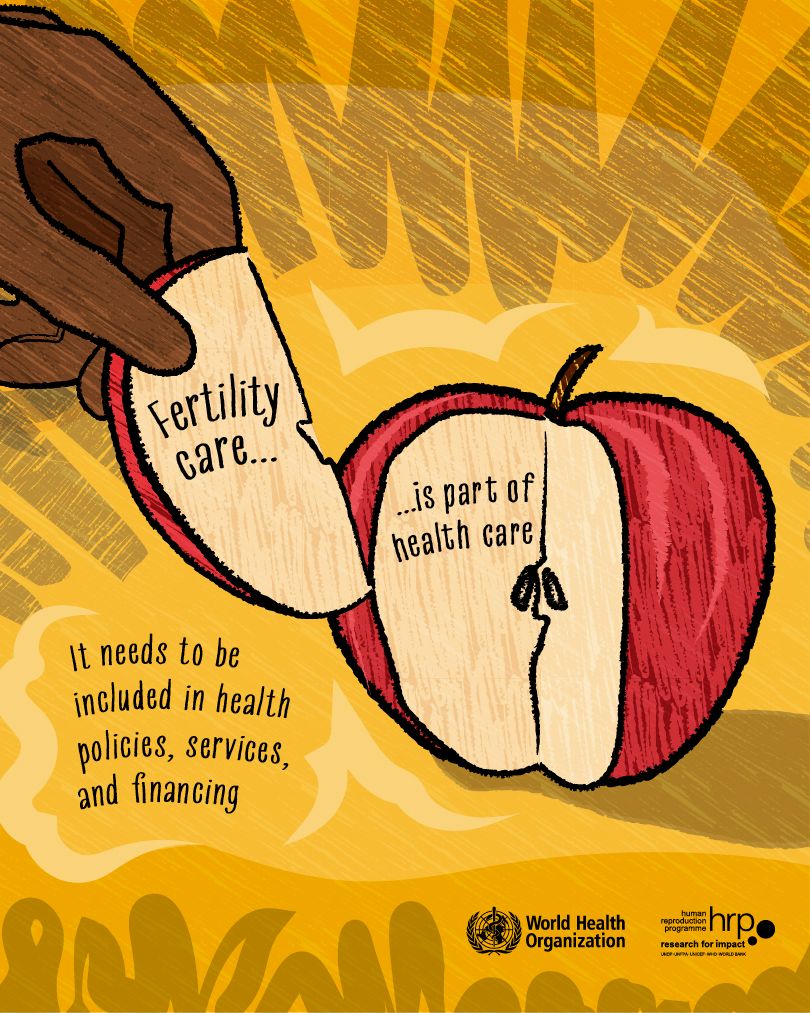October 2025
The Coalition for Fertility is proud to announce the release of our new policy paper, For Inclusive Fertility Care for All. This paper calls for urgent action to ensure that everyone - regardless of background, identity, or circumstance - has equal access to fertility care across Europe.
Access to Fertility Care Is a Human Right
Access to fertility care is not a privilege; it is an essential human right. The European Parliament affirmed this in its 2021 Matić Report, recognising fertility treatment as an integral part of sexual and reproductive health and rights, and a key component of human dignity.
Yet across Europe, many marginalised communities - people living with disabilities, chronic conditions, or infections; racialised communities; migrants; LGBTI people; and those in diverse family structures continue to face legal, societal, and financial barriers when seeking fertility care. Deep-rooted social biases about who is “fit” to be a parent still influence policies, medical practices, and public attitudes.
True equality in reproductive rights requires more than equal laws - it demands equitable systems that recognise and respond to different needs and lived experiences.
There Is No Room for Discrimination in Fertility Care
Despite human rights commitments, several European countries still maintain discriminatory policies that limit reproductive autonomy. In some cases, this takes extreme forms such as the forced sterilisation of trans, intersex, disabled, Indigenous, or Romani people - an abhorrent violation of human rights that must end immediately.
Discrimination also persists in other ways. Eligibility criteria for fertility treatment often exclude individuals based on sexual orientation, gender identity, or relationship status. Fertility care must be guided by medical need, not by religious or social judgment. Public health systems must also ensure that fertility care is publicly funded and financially accessible to all.
Even where laws guarantee equal access, inequalities remain in practice. Racialised and migrant individuals still face direct and indirect discrimination in healthcare settings, while LGBTI and single people report negative or exclusionary attitudes toward diverse family structures. People with disabilities encounter persistent stereotypes questioning their ability to parent. These biases not only deter individuals from seeking treatment but may also contribute to poorer outcomes.
To address these inequities, governments must tackle structural discrimination, ensure inclusive sensitivity training for healthcare providers, and embed diversity and human rights in all aspects of fertility policy and practice.
Inclusivity Requires Representation, Data, and Visibility
Creating an inclusive fertility system means involving those most affected in designing solutions. Policymakers must ensure the meaningful participation of marginalised groups and civil society organisations that represent them.
Robust, disaggregated data collection is also essential. Tracking who accesses fertility care and who is left behind allows policymakers to identify gaps and measure progress. The UK’s Human Fertilisation and Embryology Authority (HFEA) provides a good model, collecting detailed data by ethnicity and family type.
Visibility matters too. Educational materials, clinic websites, and public campaigns must reflect the full diversity of people seeking fertility care through inclusive imagery, language, and representation.
All Patients Should Be Supported According to Their Needs
An inclusive fertility care system must adapt to the diverse needs of patients. Clinics should be physically accessible and equipped to support people with disabilities or reduced mobility. Information about treatment must be available in accessible formats and multiple languages, ensuring that people can make informed decisions.
Digital tools and telemedicine can help bridge communication gaps, but interpretation and translation services must also be available where needed.
Importantly, individuals may face multiple, intersecting barriers such as racism, ableism, homophobia, or economic disadvantage that compound exclusion. Targeted measures must therefore be intersectional, addressing the full spectrum of diversity within and across marginalised groups.
A Call to Action
The Coalition for Fertility urges policymakers, healthcare providers, and civil societies to work together to build a fertility care system that truly leaves no one behind.
Read the full policy paper: For Inclusive Fertility Care for All (October 2025)



